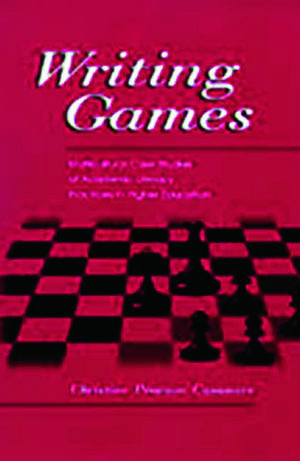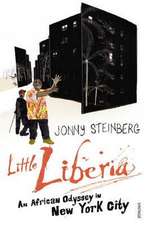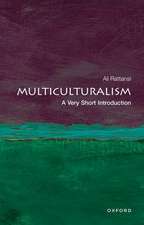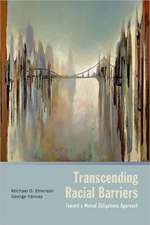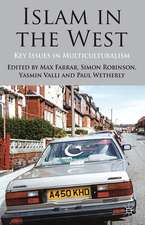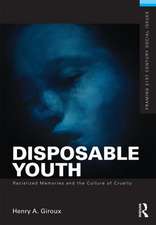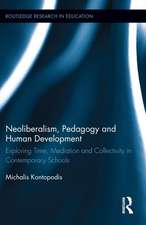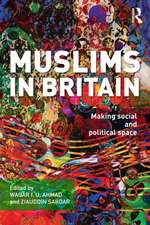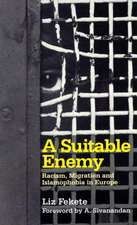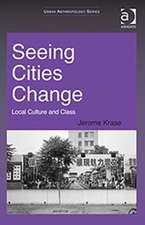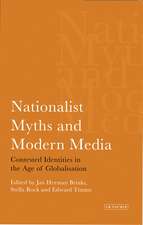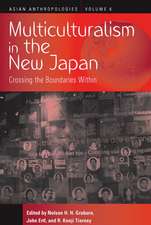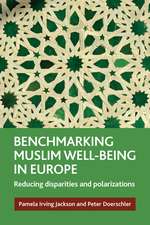Writing Games: Multicultural Case Studies of Academic Literacy Practices in Higher Education
Autor Christine Pears Casanaveen Limba Engleză Paperback – apr 2002
Embedded in a theoretical framework of situated practice, the naturalistic case studies and literacy autobiographies include portrayals of undergraduate students and teachers, master's level students, doctoral students, young bilingual faculty, and established scholars, all of whom are struggling to understand their roles in ambiguously defined communities of academic writers.
In addition to the notion of situated practice, the other powerful concept used as an interpretive framework is captured by the metaphor of "games"--a metaphor designed to emphasize that the practice of academic writing is shaped but not dictated by rules and conventions; that writing games consist of the practice of playing, not the rules themselves; and that writers have choices about whether and how to play.
Focusing on people rather than experiments, numbers, and abstractions, this interdisciplinary work draws on concepts and methods from narrative inquiry, qualitative anthropology and sociology, and case studies of academic literacy in the field of composition and rhetoric. The style of the book is accessible and reader friendly, eschewing highly technical insider language without dismissing complex issues. It has a multicultural focus in the sense that the people portrayed are from a number of different cultures within and outside North America. It is also a multivocal work: the author positions herself as both an insider and outsider and takes on the different voices of each; other voices that appear are those of her case study participants, and published authors and their case study participants. It is the author's hope that readers will find multiple ways to connect their own experiences with those of the writers the book portrays.
| Toate formatele și edițiile | Preț | Express |
|---|---|---|
| Paperback (1) | 433.19 lei 6-8 săpt. | |
| Taylor & Francis – apr 2002 | 433.19 lei 6-8 săpt. | |
| Hardback (1) | 1005.01 lei 6-8 săpt. | |
| Taylor & Francis – apr 2002 | 1005.01 lei 6-8 săpt. |
Preț: 433.19 lei
Preț vechi: 509.63 lei
-15% Nou
Puncte Express: 650
Preț estimativ în valută:
82.90€ • 85.82$ • 70.07£
82.90€ • 85.82$ • 70.07£
Carte tipărită la comandă
Livrare economică 06-20 martie
Preluare comenzi: 021 569.72.76
Specificații
ISBN-13: 9780805835311
ISBN-10: 0805835318
Pagini: 336
Dimensiuni: 152 x 229 x 19 mm
Greutate: 0.62 kg
Ediția:1
Editura: Taylor & Francis
Colecția Routledge
Locul publicării:Oxford, United Kingdom
ISBN-10: 0805835318
Pagini: 336
Dimensiuni: 152 x 229 x 19 mm
Greutate: 0.62 kg
Ediția:1
Editura: Taylor & Francis
Colecția Routledge
Locul publicării:Oxford, United Kingdom
Public țintă
ProfessionalCuprins
Contents: P. Prior, Foreword. Preface. Games and Frames: When Writing Is More Than Writing. The Beginnings of Change: Learning and Teaching Undergraduate Academic Literacy Games. Stepping Into the Profession: Writing Games in Master's Programs. Redefining the Self: The Unsettling Doctoral Program Game. Juggling and Balancing Games of Bilingual Faculty. Bending the Rules. The Paradoxical Effort After Coherence in Academic Writing Games. Appendices.
Recenzii
"Writing Games should be useful and interesting to a wide audience...Graduate students will be drawn to Casanave's insights into the intricate connections between their writing practices and departmental politics. Composition-rhetoric scholars will find useful models for the articulation of identity in the writing process and the role of reflection in that process. Those interested in cross-disciplinary study and learning community classes will find her examination of students' and teachers' approaches to writing tasks in a variety of disciplines illuminating."
—Journal of College Writing
"From Casanave's opening chapter discussing the books framework to her conclusion, the book is rich in insights about the nature of litercy practices among undergraduate students, Master's students, doctoral students, and faculty."
—Studies in Second Language Aquisition
"Writing Games is well worth reading for a number of reasons. Qualitative researchers will find Casanave's work compelling as she demonstrates that the results from case study research need not be localized to a particular study and can be interwoven to create convincing arguments and the ground for other case studies. Composition researchers and teachers will also find her work a corrective to the implied promise in some composition courses that the skills of academic writing can be conveyed in one or even several undergraduate courses. Finally, literacy researchers, especially those in English for Academic Purposes, will appreciate a study so grounded in the research as well as in data that focuses on the experiences of non-native speakers...I recommend Writing Games. It is a good academic read."
—Anthropology & Education Quarterly
"The many voices of Writing Games produce a rich, complex view of academic writing....The book succeeds in its goals. It demystifies much about the human experience of learning, writing, and life in the academy. At the same time, it expands the grounds for dialogic, practice-oriented accounts of academic writing and enculturation. It is a book that I greatly admire for all it has achieved."
—Paul Prior
University of Illinois at Urbana-Champaign, From the Foreword
"I don't know of any other work that has attempted to pull together in one place so much research on literacy (from novice to expert) in higher education, analyze it in such a close and critically constructive way, and make it so highly accessible to readers....Readers will appreciate its depth and breadth of coverage and the remarkable clarity of the author's prose style. Casanave has obviously mastered the writing game herself."
—Diane Belcher
Ohio State University
"I can imagine people picking up this book, reading different parts of it at different times, reflecting on it, seeing themselves in it, and understanding their own practices as students, teachers, teacher educators, and participants in various communities of academic literacy practices....This book definitely contributes significantly to various fields such as applied linguistics, composition studies, and literacy education...[and] to the professional development of teachers and researchers of academic literacy."
—Paul Kei Matsuda
University of New Hampshire
—Journal of College Writing
"From Casanave's opening chapter discussing the books framework to her conclusion, the book is rich in insights about the nature of litercy practices among undergraduate students, Master's students, doctoral students, and faculty."
—Studies in Second Language Aquisition
"Writing Games is well worth reading for a number of reasons. Qualitative researchers will find Casanave's work compelling as she demonstrates that the results from case study research need not be localized to a particular study and can be interwoven to create convincing arguments and the ground for other case studies. Composition researchers and teachers will also find her work a corrective to the implied promise in some composition courses that the skills of academic writing can be conveyed in one or even several undergraduate courses. Finally, literacy researchers, especially those in English for Academic Purposes, will appreciate a study so grounded in the research as well as in data that focuses on the experiences of non-native speakers...I recommend Writing Games. It is a good academic read."
—Anthropology & Education Quarterly
"The many voices of Writing Games produce a rich, complex view of academic writing....The book succeeds in its goals. It demystifies much about the human experience of learning, writing, and life in the academy. At the same time, it expands the grounds for dialogic, practice-oriented accounts of academic writing and enculturation. It is a book that I greatly admire for all it has achieved."
—Paul Prior
University of Illinois at Urbana-Champaign, From the Foreword
"I don't know of any other work that has attempted to pull together in one place so much research on literacy (from novice to expert) in higher education, analyze it in such a close and critically constructive way, and make it so highly accessible to readers....Readers will appreciate its depth and breadth of coverage and the remarkable clarity of the author's prose style. Casanave has obviously mastered the writing game herself."
—Diane Belcher
Ohio State University
"I can imagine people picking up this book, reading different parts of it at different times, reflecting on it, seeing themselves in it, and understanding their own practices as students, teachers, teacher educators, and participants in various communities of academic literacy practices....This book definitely contributes significantly to various fields such as applied linguistics, composition studies, and literacy education...[and] to the professional development of teachers and researchers of academic literacy."
—Paul Kei Matsuda
University of New Hampshire
